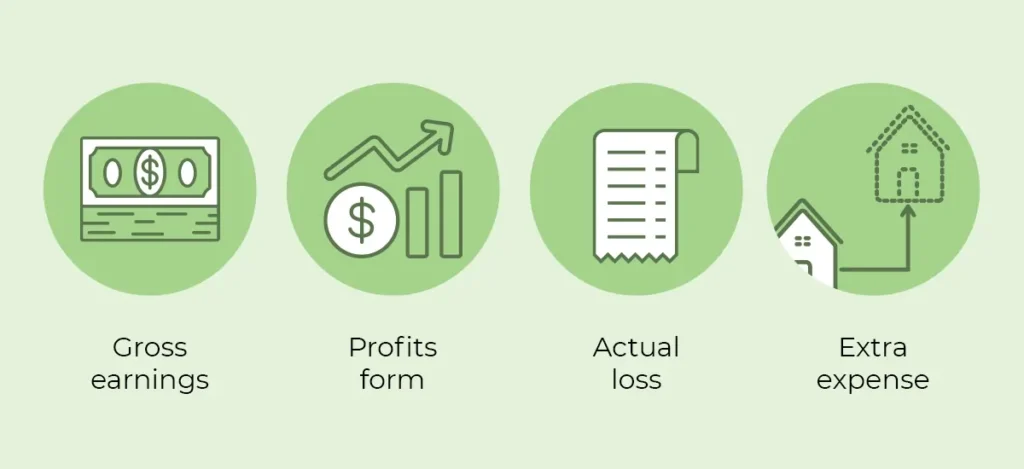A recent study conducted by KPMG Canada found that of 92 % of business owners and executives fear their companies will be impacted by extreme weather. Over half of the businesses surveyed have already seen their profits impacted by climate change, whether that was from flooding, heatwaves, or forest fires.
More and more businesses are rethinking climate risks. Severe weather events can put businesses out of work for weeks, months, or even longer—and without the right insurance coverage, it can be hard to spring back from these kinds of financial losses.
How has the increase in extreme weather impacted businesses in Canada?
Jasper’s devastating wildfires in July 2024 have destroyed 30% of the town’s structures and are one of the many prime examples of business owners being impacted by climate change and being left to pick up the pieces. In 2023, severe summer storms caused over $340 million in insured damages.
The planet is on pace to warm by nearly three degrees Celsius by 2100. However far off that might seem, the realities of the situation are still very present. Heavy rainfall, prolonged periods of drought, and the ever-increasing risk of wildfire pose some obvious physical threats to businesses. Even companies not directly impacted might see suppliers devastated by weather events and consequently be unable to carry out business operations as usual.
What can insurance do for businesses out for repair due to weather events?
Insurance is designed to cover unexpected events, including those that may arise due to climate change. As you might expect, physical damages are covered under commercial property (commercial auto for vehicles, assuming comprehensive coverage exists) but one of the biggest killers for any scale of business is the downtime spent making repairs and doing restoration.
Enter business interruption insurance. It can help cover your ongoing expenses and help keep your business afloat by ensuring you’re able to make ends meet even after an interruption due to extreme weather (or any other insured reason). Depending on the type, it can cover certain expenses up until your business is entirely restored, until you’re making pre-loss income, or until your policy’s limits are reached.
There are several types of business interruption insurance available to consider:

Gross earnings
Gross earnings business interruption insurance provides coverage up until your insured property is repaired or replaced, even if your company isn’t back to the level of earnings it was at prior to your claim.
Profits form
This offers coverage until the point where your business resumes operations at its normal, pre-claim level of profits (up until your policy limit or coverage period).
Actual loss
Actual loss sustained (ALS) is a type of business interruption insurance that covers all types of expenses and losses due to a claim from physical damages. This includes reduced income after reopening, loss of profits due to the claim, coverage for fixed ongoing expenses, and so on.
Extra expense
This is designed for businesses that may be able to continue operations after a claim but covers additional expenses, such as temporary relocation, emergency repairs, and extra outsourcing or advertising.
Preparing with climate risk assessments and additional proactive measures
Insurance is meant to serve as a backup, not a wall of defense. It can help restore your business back to its pre-incident state, but it can’t prevent things from going wrong.
- Having a climate preparedness plan is key to any business. Even if your workplace isn’t vulnerable to tornadoes, it may be at risk for fires. If not fires, then perhaps flooding. The list goes on, but the point remains the same: it’s always better to be prepared.
- Assess what weather risks your business may be exposed to. Conduct an in-depth analysis to see what weather risks your business may be faced with; are you in an area susceptible to freezing temperatures, wildfires, or flooding?
- Assess the scale of impact of severe weather. Could it lead to the destruction of your entire building, trap employees, or result in severe health hazards?
- Establish communication procedure for relevant scenarios. Develop a safety plan, muster point, and course of action for emergencies. Make sure staff are equipped with emergency kits and two-way radios.
- Stay on top of the weather. Tune in to weather alerts and always follow advice from local authorities. Plan in advance how to communicate with employees if there is a weather alert that requires notification.
- Train staff. Ensure that all first aid training is up to date. For your emergency evacuation plan, ensure there are trained team members who have specific roles they have been drilled on. Practice your plan!
A commercial insurance broker may be able to provide your company with additional insights based on your location, type of business, and specific threats.
Call Mitch Insurance today
Climate risks are unpredictable, and for business owners they can be very stressful. Mitch’s commercial team are experts in emerging risks like the ones Canadians companies face from climate change. Give us a call today to discuss your business and concerns. We’ll help find a policy that’s right for your unique circumstances to ensure your business is always protected.
Looking for commercial insurance?
Speak with a Mitch Insurance broker today to get a quote on Ontario commercial insurance. Learn more >
Call now
1-800-731-2228







